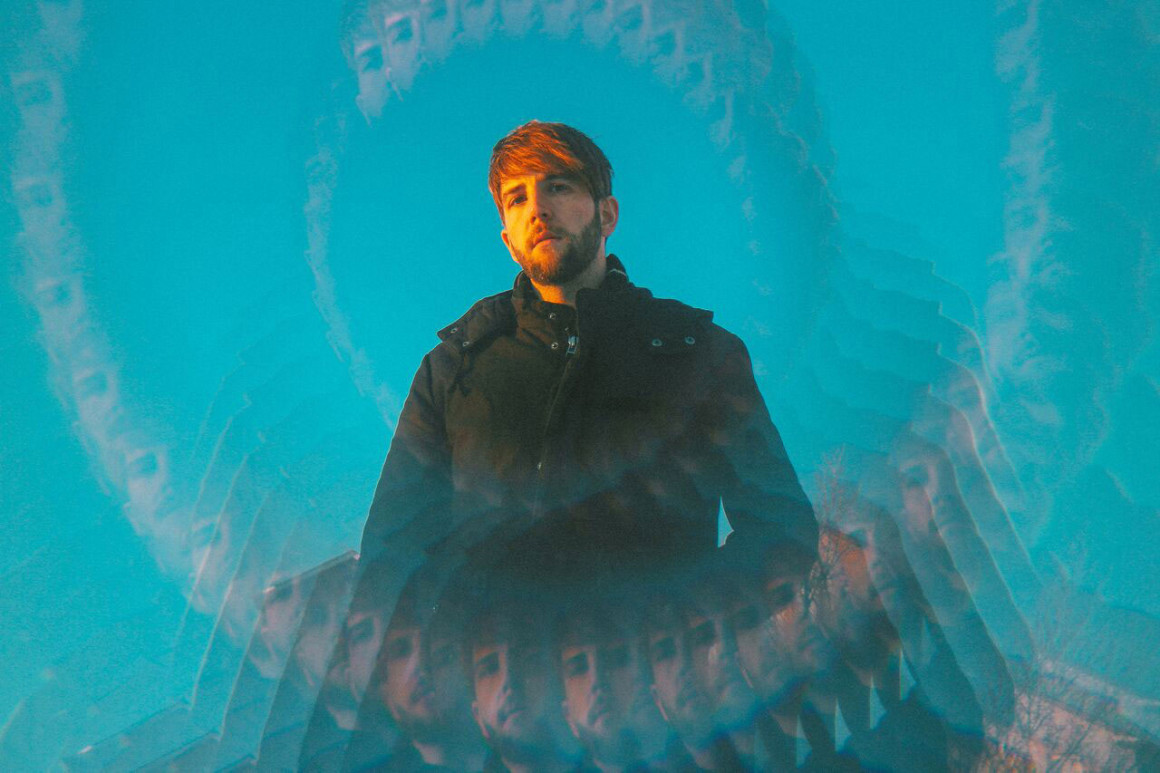
Owen Pallett talks new album, movie scores and working with Arcade Fire
By Jason Herring, June 18 2015 —
Owen Pallett is a busy man. Over the last few years, the Canadian violinist and composer released In Conflict, his fourth full-length album, toured with Arcade Fire in support of their album Reflektor and helped compose the Oscar-nominated soundtrack to the film Her.
Pallett recently stopped in Calgary for the Sled Island pre-show at Lukes Drug Mart, where he performed an impressive violin set. We spoke with the musician about his new album, his Oscar nomination and the influence of video games in music.
The Gauntlet: Your new album In Conflict showcases much more personal and tortured music than your previous works. Why did you decide to make that change?
Owen Pallett: I don’t know if it was a decision. I try and chalk up so much of what I do to being an agent of my own intention, but truthfully, a lot of these decisions just happen. I can’t even agree that the songs on In Conflict are more personal than before. If anything, these songs are freer and more liberated. I’m singing my mind, singing about release and about a happily broken brain.
G: A lot of the music on that album sounds very sinister to me, especially a song like “The Passions.” It almost sounds like the soundtrack to a Hitchcock film. Was this a conscious decision?
OP: I’m surprised you think “The Passions” is sinister. To me, it’s just meant to be beautiful. But that’s alright. That song is about brother-sisterhood between queer people. Sometimes it manifests itself as sexual congress. Other times it’s camaraderie or mentorship. The disparity between the title, ‘passions,’ and what is sung, ‘compassion,’ is meant to suggest that the two are linked to the same idea — brother- and sister-hood.
The music contains a number of binaries, both major and minor tonalities converging and diverging like a hand approaching a mirror. I never thought of this song as sounding sinister.
G: You won a Grammy with Arcade Fire in 2010 and were nominated for an Oscar for your work on Her last year. What was it like attending those ceremonies?
OP: Awards ceremonies are not for me. I am a crazy person, I suppose, and I don’t derive pleasure from award ceremonies. For me, getting a kind letter from someone, having somebody ask to kiss me or serving food to friends — these are the things I cherish.
G: Have you received more offers to score movies after the success of Her? Are you interested in doing more movies?
OP: Yes and yes. Her’s success was enormous for me. I’ve had many offers for film scores, including a couple that I’ve finished and am excited to have released. This is why I can’t talk shit about the Oscar nomination. I’m happy and grateful about what it’s done for my career. But it did not provide me with any other feelings of satisfaction.
G: Last year you accompanied Arcade Fire on their Reflektor tour, instead touring full-time behind your new album. Why did you make that decision? Are you planning on working with Arcade Fire again in the future?
OP: Initially, when I signed on to tour with Arcade Fire, I hoped there would be more time afforded to me to properly promote and tour In Conflict. But Arcade Fire are a large group that directly employ 100 people and indirectly keep thousands of people employed. My desires to promote my own album don’t really factor into their scheduling. So it wasn’t really my decision.
I cannot say I was disappointed in the album’s release, because that would be inaccurate. We worked very hard, played amazing shows and got terrific reviews. But the release would have had more resonance if my schedule had been freer. But I was helping out Arcade Fire, to whom I owe so much. I hope to be able to work with Arcade Fire again. They are my favourite clients and my favourite people.
G: In a lot of your old work, you include references to video games — your Polaris-prize winning album He Poos Clouds was full of them and you previously released music under the name Final Fantasy. Do video games still influence your music now?
OP: In 2015, everybody plays video games. Everyone I know is addicted to Candy Crush. But in the ’80s and ’90s, video games and computers were still considered part of nerd culture. I played hilariously didactic role-playing games like Nahlakh and Ancient Domains Of Mystery. So in the early ’00s, it was somewhat strange to sing serious songs that directly referenced stuff like Dungeons and Dragons, Zelda, Mario and all the other cornerstones of nerdom. Songwriters mostly seemed to be into songs about Fassbinder and Bataille and Superman and history.
But nerd culture got blown open pretty quickly. First it was chiptune. Then meme culture went mainstream. It’s a very different culture now than it was ten years ago. In 2004 I was described by the New York Times as a “nerd,” but now that term doesn’t really apply to anybody or anything.
Gaming and game music was a formative influence on me and so it will always inform my creative decisions. But these days I’m much more interested in books, poetry and cooking than I am in video games.
Interview edited for clarity and brevity.
